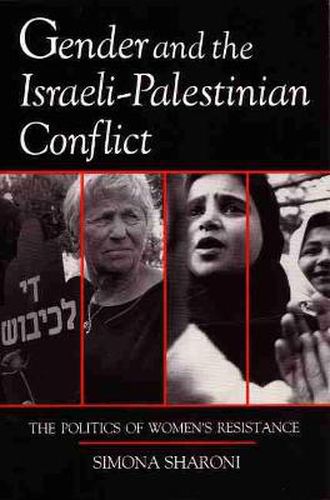Readings Newsletter
Become a Readings Member to make your shopping experience even easier.
Sign in or sign up for free!
You’re not far away from qualifying for FREE standard shipping within Australia
You’ve qualified for FREE standard shipping within Australia
The cart is loading…






Simona Sharoni’s innovative approach to the conflict in the Middle East stresses the relationship between gender and politics by illuminating the daily experiences of women in Israel and in the occupied West Bank and Gaza Strip. Among the issues explored are the connections between the violence of the conflict and the escalation of violence against women; the link between militarism and sexism; and the role of nationalism in building individual and collective identities. Sharoni also shows the impact of Intifada (the Palestinian uprising in December, 1987) on the Palestinian and Israeli women’s movements. While women’s coalitions such as these are critical subjects in and of themselves, the actions of marginalized women are rarely, if ever, given serious treatment in the study of international relations. With this book, Sharoni creates an aperture for the emergence of new perspectives and alternative methods in the development of a new vision in global politics and gender equality. The interdisciplinary scope of the book will make it valuable to scholars of political science, women’s studies, conflict resolution, and Middle East studies.
$9.00 standard shipping within Australia
FREE standard shipping within Australia for orders over $100.00
Express & International shipping calculated at checkout
Simona Sharoni’s innovative approach to the conflict in the Middle East stresses the relationship between gender and politics by illuminating the daily experiences of women in Israel and in the occupied West Bank and Gaza Strip. Among the issues explored are the connections between the violence of the conflict and the escalation of violence against women; the link between militarism and sexism; and the role of nationalism in building individual and collective identities. Sharoni also shows the impact of Intifada (the Palestinian uprising in December, 1987) on the Palestinian and Israeli women’s movements. While women’s coalitions such as these are critical subjects in and of themselves, the actions of marginalized women are rarely, if ever, given serious treatment in the study of international relations. With this book, Sharoni creates an aperture for the emergence of new perspectives and alternative methods in the development of a new vision in global politics and gender equality. The interdisciplinary scope of the book will make it valuable to scholars of political science, women’s studies, conflict resolution, and Middle East studies.